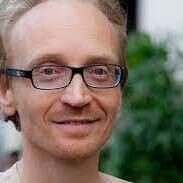Current Tutors
Dr Jason Birch
About
Jason Birch completed a Doctorate of Philosophy in Oriental Studies (Sanskrit) at Oxford University under the supervision of Professor Alexis Sanderson (2013). He has been dedicated to the study of Sanskrit and the practice of yoga since 1996. As a scholar of yoga, his special interest is in the medieval yoga traditions of India, particularly those known as Haṭha and the Rājayoga.
Jason’s thesis is a critical edition and annotated translation of a Sanskrit yoga text called the Amanaska, which is the earliest extant work on Rājayoga. It teaches the attainment of a profound meditative state called Samādhi and its methods and terminology are largely derived from Tantric Śaivism.
Copies of seventy manuscripts of the Amanaska were acquired from more than twenty five libraries in India and Nepal. The critical edition was established on stemmatic analysis of the manuscripts, a case-by-case examination of the variant readings and the use of parallel passages derived from an extensive survey of medieval yoga texts. This philological work became the basis for a reconstruction of mediaeval yoga's broader history from the twelfth to the fifteenth century, which constitutes the main part of the monographic introduction to the edition.
In addition to documenting the mediaeval history of Rājayoga for the first time, Jason's doctoral research had significant implications on the history of modern yoga. In tracing Rājayoga's roots to Tantric Śaivism, his research revealed that the relationship between Rājayoga and the Yogasūtras was a late nineteenth-century development. In his article for IJHS (2013), this finding served as the basis for a broader discussion on how yoga lineages use tradition to sanction innovation, resulting in many competing interpretations of exemplars such as Rājayoga.
Owing to the interdependence of Haṭha and Rājayoga traditions, Jason's doctoral research identified the earliest definition of Haṭhayoga in a commentary on a Buddhist Tantra. His discussion of this and a new interpretation of the meaning of the term 'haṭha' in Haṭhayoga was published in a paper by JOAS (2011). Since the late nineteenth century, Indologists have understood Haṭhayoga as a yoga performed by ‘forceful’ exertion, whereas the textual evidence suggests that it was a type of yoga which ‘forced’ (haṭha) certain results.
During his doctoral fieldwork in India, he discovered the earliest textual source for a list of more than eight four yoga postures. This is the subject for a forthcoming publication in which new manuscript evidence proves that some traditions of Haṭhayoga incorporated the practice of many dynamic postures before the British took control of India.
Jason's articles have been quoted in recent publications on yoga, such as James Mallinson's academic journal articles on Haṭhayoga, Mark Singleton's Gurus of Modern Yoga, Beatrix Hauser's Yoga Traveling: Bodily Practice in Transcultural Perspective and David White's The Yoga Sutra of Patanjali: A Biography.
From September 2015, Jason has undertaken a post-doctoral research position at SOAS of London University working with James Mallinson (the principal investigator) and Mark Singleton on a 5-year research project funded by the European Research Council. This project aims to critically edit and translate ten Haṭhayoga texts and reappraise the history of Haṭhayoga in light of these unpublished texts.
Jason has been invited to lecture about the history, theory and practice of Yoga on various Master of Arts programmes and Yoga Teacher Training courses in London, Los Angeles, Sydney, Singapore, Japan and Bali.




